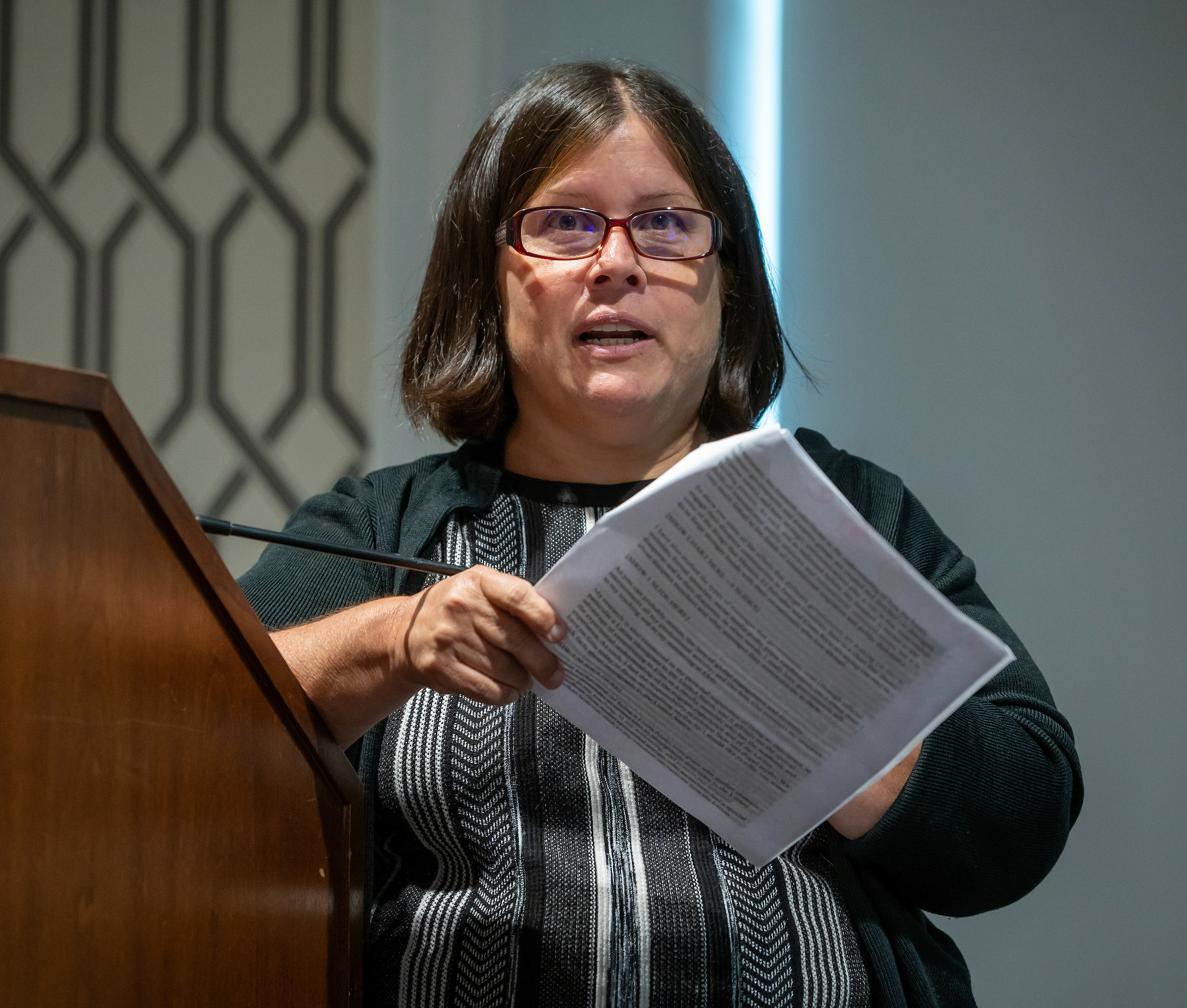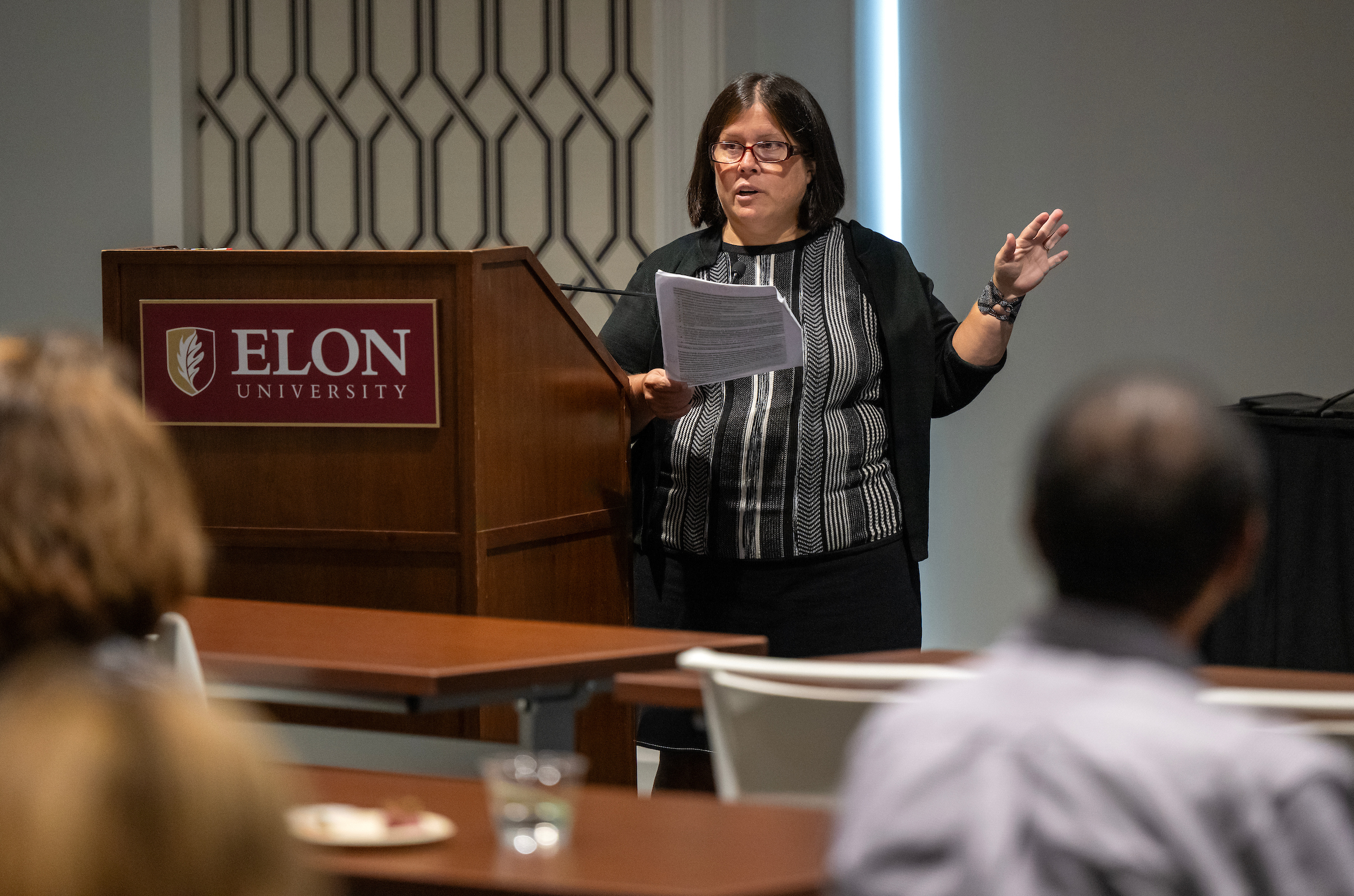Bravo, professor of strategic communications, was awarded the Distinguished Scholar Award in 2022 and presented her research on engaged learning during the lecture on Wednesday, Sept. 27.
Vanessa Bravo, professor of strategic communications, has poured significant effort and scholarship into the area of transnational communications and transnational public relations. The main area of her research has been the strategic communication processes by which home governments in countries such as Mexico, El Salvador and Costa Rica, Bravo’s native country, try to establish and maintain mutually beneficial relationships with their diaspora communities.
Bravo discussed the importance of this relationship as many diaspora communities become a part of their country and contribute to its well-being in many aspects during her Distinguished Scholar Award Lecture on Wednesday, Sept. 27.

“Migrants from Latin America, in particular, perhaps because of the close proximity to the United States, tend to keep deep connections with their home country as they integrate and live in the United States,” Bravo said during her lecture titled, “Strategic communications, public diplomacy and activism: The role of governments and diaspora groups.”
Bravo received the Distinguished Scholar Award in 2022, which recognizes scholarship acknowledged for its excellence by both the Elon community and the community within the candidate’s discipline. Bravo co-edited a book published in 2021, “Latin American Diasporas in Public Diplomacy,” which examines the different strategic roles that diaspora groups play in modern public diplomacy.
Remittance, the non-commercial transfer of money by a member of a diaspora community to their homeland, is an important part of that government’s relationship with its migrants, according to Bravo.
“For home governments, these connections are or should be strategic because the diaspora communications can offer economic support. In many cases, remittances are a substantial part of the home government’s gross domestic product, such as in the cases of El Salvador and Haiti.”
Remittances from El Salvador and Haiti account for 24% of the GDP of those countries, while 4% of Mexico’s GDP and 0.84% of Costa Rica’s GDP are from remittances. As a comparison, remittances only make up 0.03% of the United States GDP.
Countries with weaker economies and a need for increased political reputation tend to have a strong interest in the state, while countries with strong economies and stable governments tend to have a weak interest.
Bravo also said that diaspora communities can act as informal ambassadors to their home countries. Just as easily, however, they can be strong opponents while abroad and even initiate change in their homelands. An example Bravo used was the resignation of Puerto Rican governor Ricardo Rosselló following a multitude of protests throughout the U.S.
“Diaspora communities can offer legitimacy and political backing to those home governments. Or [it can be] the opposite. They can be strong contesters abroad, of what home governments are doing back home,” she said.

Bravo began teaching at Elon in 2011 and is department chair of the Strategic Communication Department as well as the co-chair of the Latinx/Hispanic Council and co-founder of the Latinx Employee Resource Group at Elon. Outside of Elon, Bravo is the vice head of the Association for Education in Journalism and Mass Communication’s Minorities and Communication Division and a member of the executive board of the International Communication Section of the International Studies Association.
Bravo, who is originally from Costa Rica, has been a champion of other underrepresented researchers as well, creating a Facebook page for Latinx scholars to connect. Bravo said her experience as a Latina immigrant to the United States affords her a special advantage to contribute to Elon as a faculty member.
“I want to thank Elon for granting me this award. For valuing the research and the researcher, holistically,” Bravo said. “I know that in other universities, I would have not been considered for an award like this. But I’m thankful that Elon values these topics and embodies the fact that I have promoted the work of other underrepresented researchers as well.”



